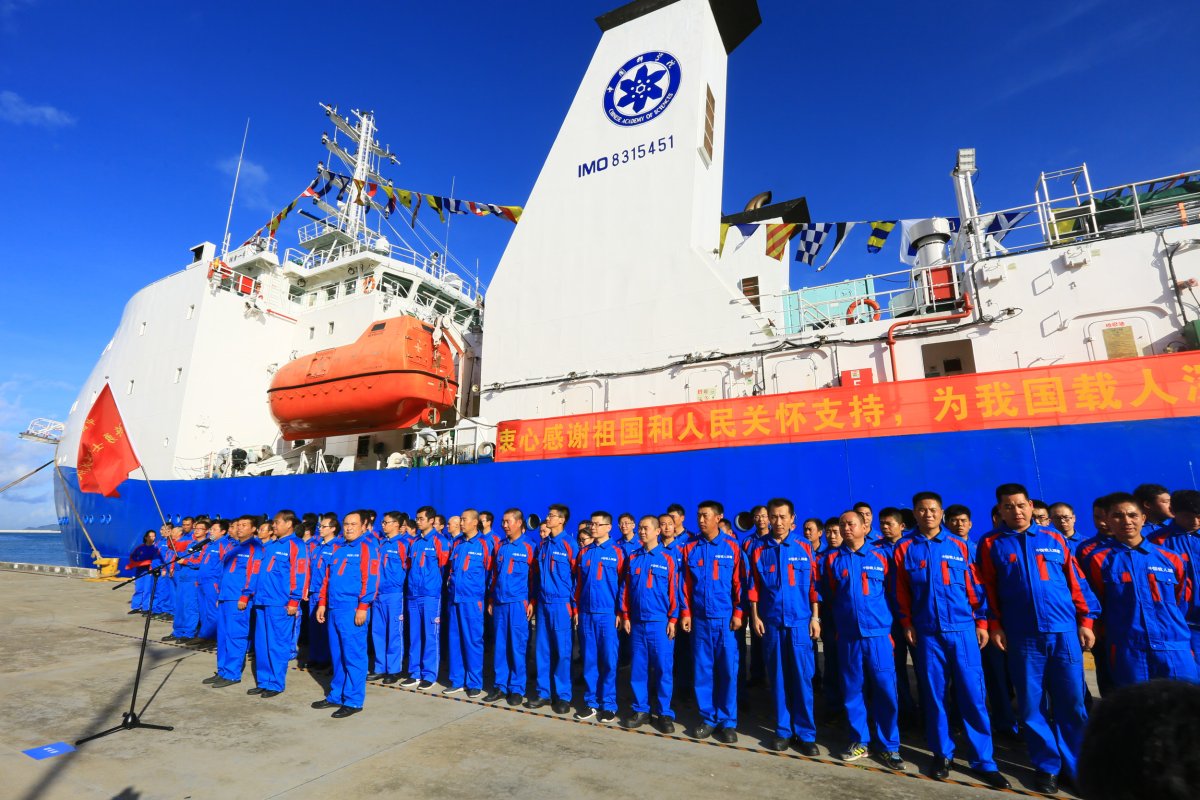A former U.S. submariner has raised the alarm over China's deep-sea mining activity geared towards militarizing the ocean.
The concerns come as Beijing increasingly defines the rules of engagement on the high seas as a signatory of the United Nations' Law of the Sea treaty. To date, 168 countries in total have ratified the treaty, thereby ensuring their stake in the potentially lucrative extraction of trillions of dollars worth of minerals from the ocean floor, according to CBS.
However, the United States stands as a notable outlier, having not ratified the treaty due to opposition from a contingent of Republican Senators who argue that it would compromise American sovereignty and power.
"If you're going to find submarines in the ocean, you need to know what the bottom looks like. You need to know what the temperature is. You need to know what the salinity is. If China is using civilian vessels to sort of on the sly do those surveys, then that improves, could improve, their ability to find U.S. and Allied submarines over time as they better understand that undersea environment," Tom Shugart, former U.S. submariner and an Adjunct Senior Fellow at Center for a New American Security told CBS weekly show 60 Minutes.
"China is not so much changing the rules as it is reducing their importance." Isaac B. Kardon wrote in his book China's Law of the Sea: The New Rules of Maritime Order.
The U.S. stance on the treaty has prevented America from participating in seabed mining activities, leaving it conspicuously absent from the race to claim and exploit the ocean's resources.
Despite the efforts of five presidential administrations, the Senate has consistently blocked ratification, creating a legislative impasse that threatens to sideline the U.S. as other nations, particularly China, move forward with plans to dominate this new industry.
The deep-sea miners can be used for mapping the seafloor, which aids in underwater resource exploration and facilitates safer operations for the Chinese Navy's growing fleet of submarines. Beijing's deep-sea submersibles and spy ships have been spotted in the deep waters of the Indian and Pacific oceans in recent years.
"They're [China] carving up and laying claim to parcels on the seabed covered with rich balls of ore. China has five sites—90,000 square miles—the most of any country. The United States? None: blocked from even putting a toe in the water by its refusal to ratify the treaty," Gerard Barron, CEO of The Metals Company, told 60 Minutes.
Newsweek contacted the Chinese Embassy in Washington, D.C., and the U.S. State Department for comment.
China is one of the leading seabed mining countries, with the most seabed exploration licenses in the world, Nature Magazine reported on Tuesday.
However, China has broader strategic goals besides the seabed mining for minerals.
The U.S. Naval War College researchers Peter Dutton and Ryan Martinson linked China's oceanographic research to the People's Liberation Army Navy (PLAN) in a November 2018 report.
"Civilian oceanographers also support the PLAN through their efforts to model oceanic processes. Especially important are the dynamic elements of the ocean battlespace environment, such as surface and subsurface currents, tides, and surface and subsurface waves," the authors said, Newsweek reported earlier.
Chinese state-owned China State Shipbuilding Corporation (CSSC), which manufactures both civilian and military ships, is the leading maker of deep-sea submersibles, including Jiaolong, or Sea Dragon, and Shenhai Yongshi, or Deep-Sea Warrior, Chinese state-owned newspaper China Daily reported on March 12, 2023.

As the International Seabed Authority (ISA), established under the Law of Sea treaty, has been underway in Kingston, Jamaica, since last week to deliberate on the future of seabed mining, concerns are mounting over the rush to finalize regulations governing the industry, Nature Magazine has reported.
"The meeting is set to end on 29 March, and there's mounting concern among researchers that the final text is being rushed, not least because some countries including China, India, Japan and South Korea want to press ahead with commercial exploitation of deep-sea minerals," Nature Magazine added.
Uncommon Knowledge
Newsweek is committed to challenging conventional wisdom and finding connections in the search for common ground.
Newsweek is committed to challenging conventional wisdom and finding connections in the search for common ground.
fairness meter
To Rate This Article
About the writer
Aadil Brar is a reporter for Newsweek based in Taipei, Taiwan. He covers international security, U.S.-China relations, and East Asian ... Read more
To read how Newsweek uses AI as a newsroom tool, Click here.








